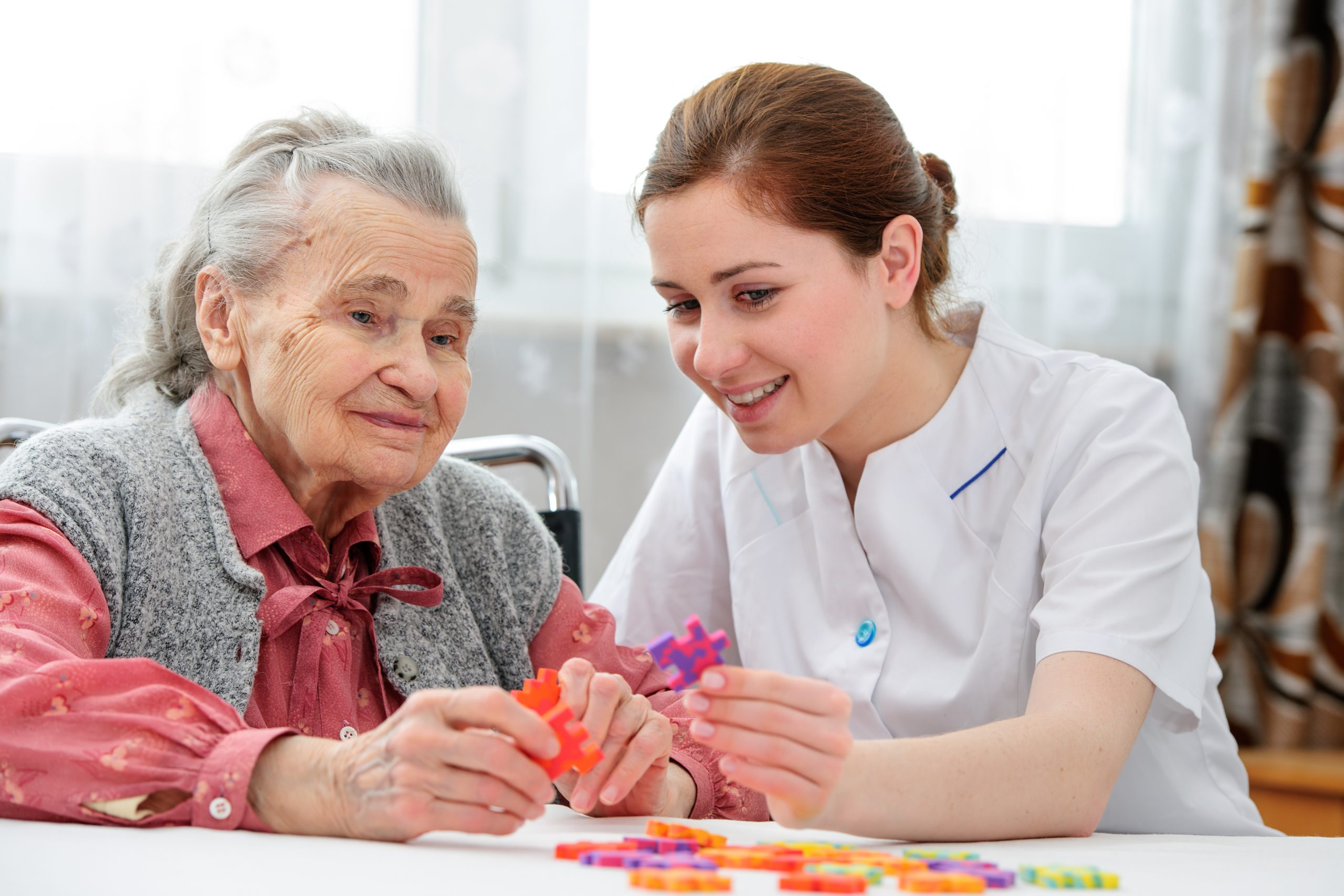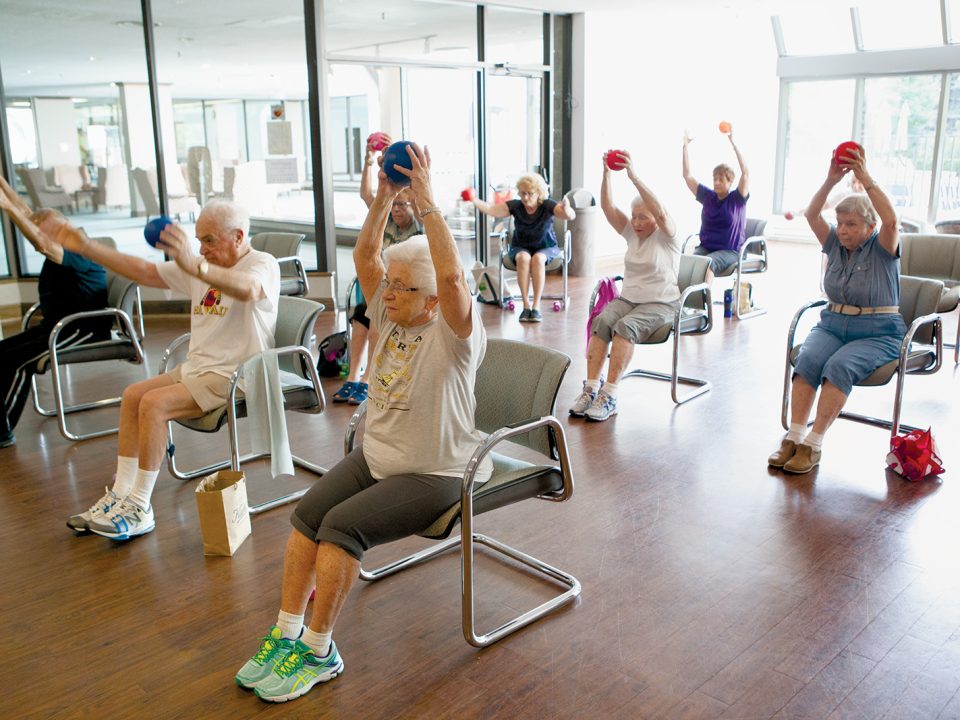
Staff benefit from dementia-specific training throughout their career
September 15, 2019
Prostate cancer nurse says not enough said about impact on sex, calls for support
September 19, 2019Pay, societal views factors preventing men from working in teaching and aged care roles

nurse doing bandages on an old lady on wheelchair
Pay, societal views factors preventing men from working in teaching and aged care roles.
When Brett Gent began working as a primary school teacher, he was an extremely rare commodity. And when he moved into the kindergarten sector it was not any better.
“The school that I worked at when I first graduated as a Year Two teacher, I was the first male to be in the building for around 25 years,” he said.
“My first kindy, there were no males at all, and the second one there was one male relief worker. I think that’s when it first really hit me that there weren’t too many males around.”
Mr Gent is now the director of The Lady George Kindergarten in Adelaide, and despite a concerted effort to recruit more men, there are still none on the permanent staff.
“The challenges that I hear from a lot of male students revolves around that mentality of ‘this is really a woman’s job and men shouldn’t be here’,” he said.
Education and training is one of the most female-dominated industries in Australia, with almost three quarters of the workforce women. In early childhood education, the gap is even bigger.
“Within the early childhood sector the percentage of male educators sits at around 2 to 3 per cent of the workforce,” Dr Martyn Mills-Bayne from the University of South Australia said.
Dr Mills-Bayne has created a mentor program for men in early childhood education, and said there were several reasons many men were reluctant to enter the industry.
“Society often views caring and educating young children as women’s work,” he said.
“The pay that early childhood educators receive is not enough for the complex and meaningful work that our educators and teachers do [and] men may be the main earner for their families.”
He said sometimes men working with young children were also viewed as predators and something to be suspicious of.
“This view can be explicitly experienced with some families asking for their child not to be in a room with a male educator,” he said.
Mr Gent said fortunately he had never experienced that type of negativity.
“I know that I’m lucky, I know that there’s some other people that haven’t had the same experience as me,” he said.
Dr Mills-Bayne said very little was being done to bring more men on board, but he did not support the suggestion of creating quotas.
“High quality educators are needed regardless of gender, so quotas are a concern,” he said.
“I think the field of early childhood education needs to be more highly valued and our teachers and educators [better] remunerated.”
The issues being faced in education are similar to those in health, particularly aged care.
William Date began working as a care companion five years ago, and has quickly worked his way up to being a nurse in charge at a Mercy Health aged care facility in Melbourne.
“It’s very fulfilling for me, it’s a rewarding job, I think it’s a calling and I just love it,” Mr Date said.
Men make up only 10 per cent of the aged care workforce and Mr Date is one of four male nurses at his workplace. It is a situation he has become accustomed to, but wants to see change.
“I think for many generations the biggest stereotype about this profession is that this should be a female profession,” he said.
“I believe that equally we have those caring skills, just like the other gender, and we’re able to look after our residents with empathy and compassion just like any other staff.”
Mr Date said sometimes families do prefer to have a female carer work with their relatives.
“We have to look at a resident’s profile, their background, their culture, their religion, and understand why some of them would prefer female staff rather than male staff, and it’s just all about respect,” he said.
“Being a male myself, I need to gain trust, and build rapport with these lovely residents, so I can do my job [and] do my caring with ease and comfort.”
Mr Date’s employer Mercy Health is making a concerted effort to recruit more men. Chief executive Stephen Cornelissen said there had been many challenges.
“There’s … that stereotype of what a male’s meant to be doing and the sort of work, you know if you’re a nurse and you’re a male, you’re a male nurse, not just a nurse,” he said.
He said the issue of pay was also relevant in aged care.
“We still have in our society today a predominant view that the male is the main breadwinner of any family.
“Now that obviously has to change and is changing.
“While it is there I think having limitations on what earnings you can have does make it very difficult for people to see this as a primary career choice that’s got good financial stability.
“These professions we should hold at the highest esteem, and we don’t, and I think that has to be social change.”
Gender balanced teams perform better
Workplace Gender Equality Agency (WGEA) director Libby Lyons said it was vital for everyone that industries achieved greater gender balance.
“We know that gender balanced teams perform better, we know that gender balanced teams have better safety records, and … can actually help the profitability of an organisation,” she said.
She said both education and health were booming industries and workers were in high demand.
“We need these female-dominated industries to do as some of the male-dominated industries have done and …work very hard to attract men,” she said.
“Step up, and put a gender equality strategy and plan in place, implement it, and follow it through.
“It actually will provide sustainable and rewarding careers for men if we support them, and we challenge our views about what sorts of jobs women and men should be doing.”
This article was originally published on ABC News at abc.net.au on 14/9/19 by Alina Eacott.










